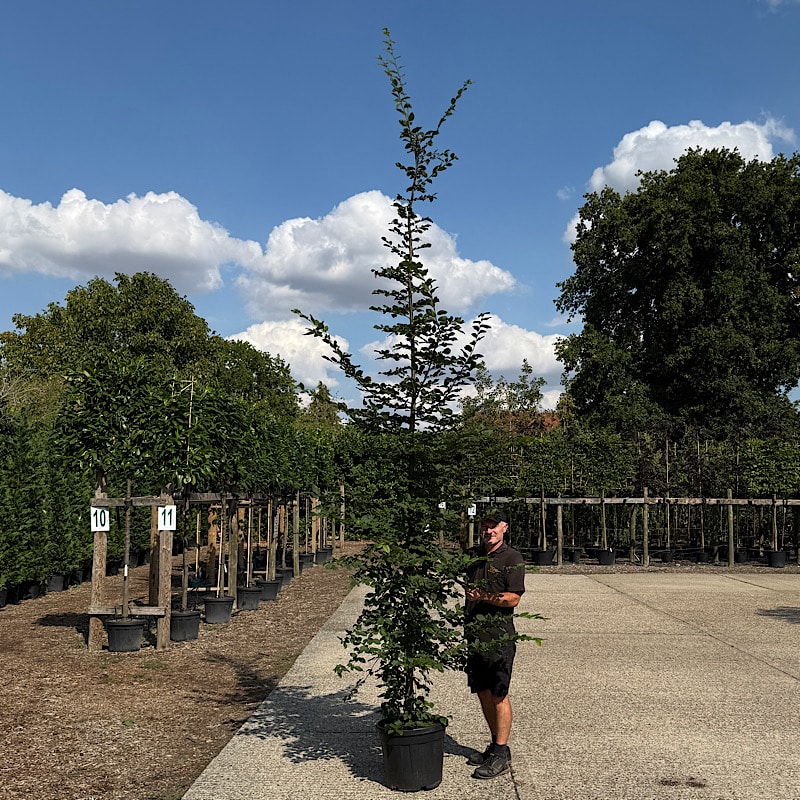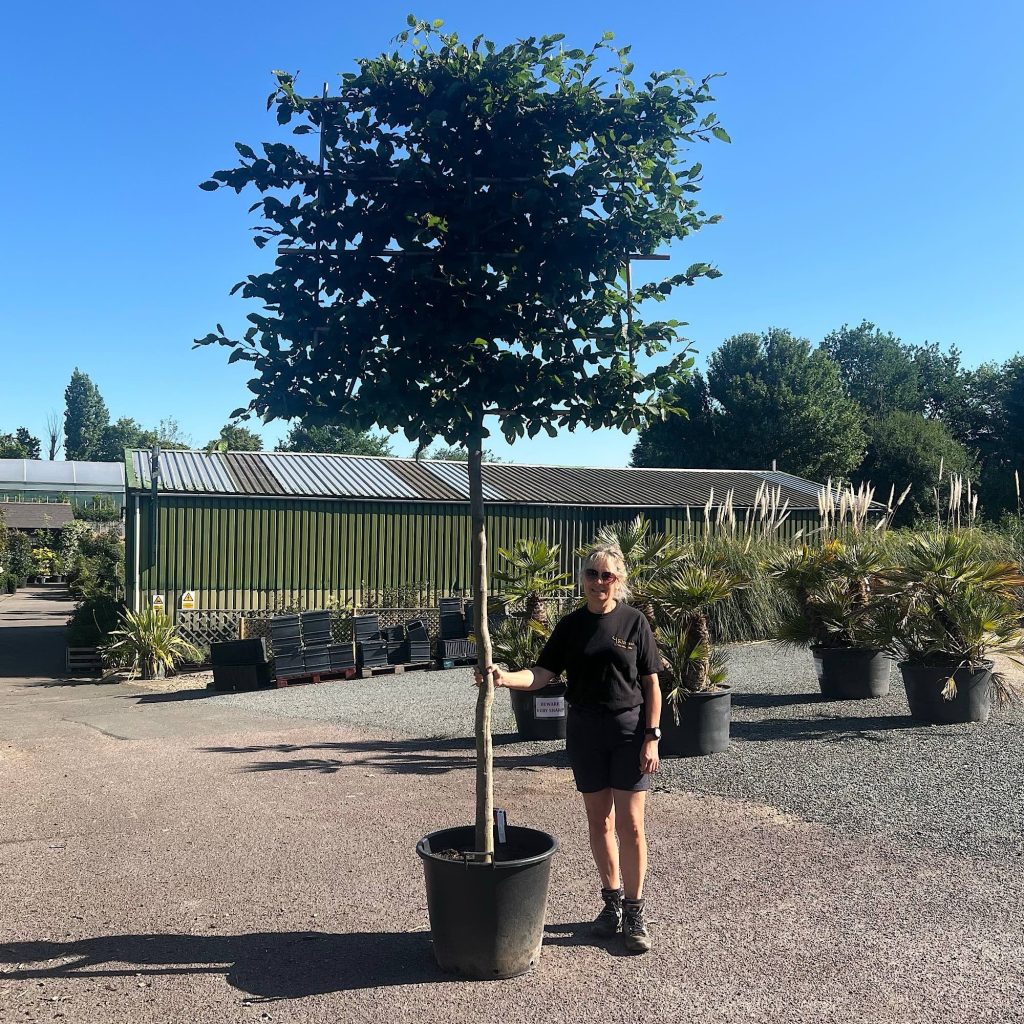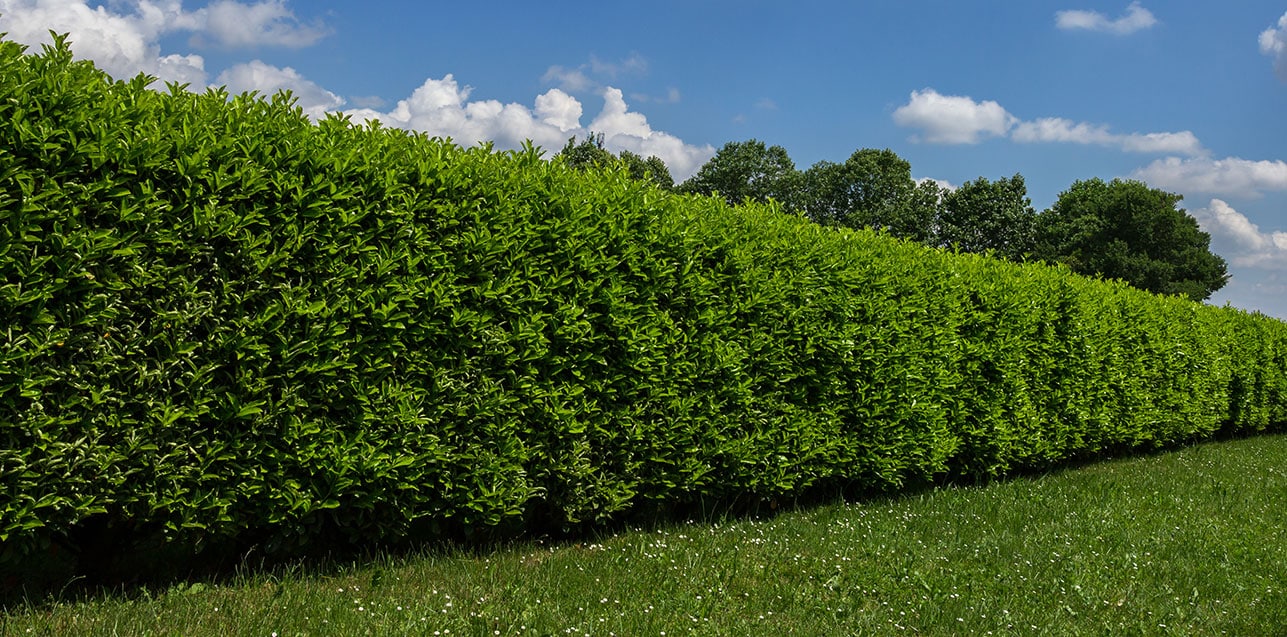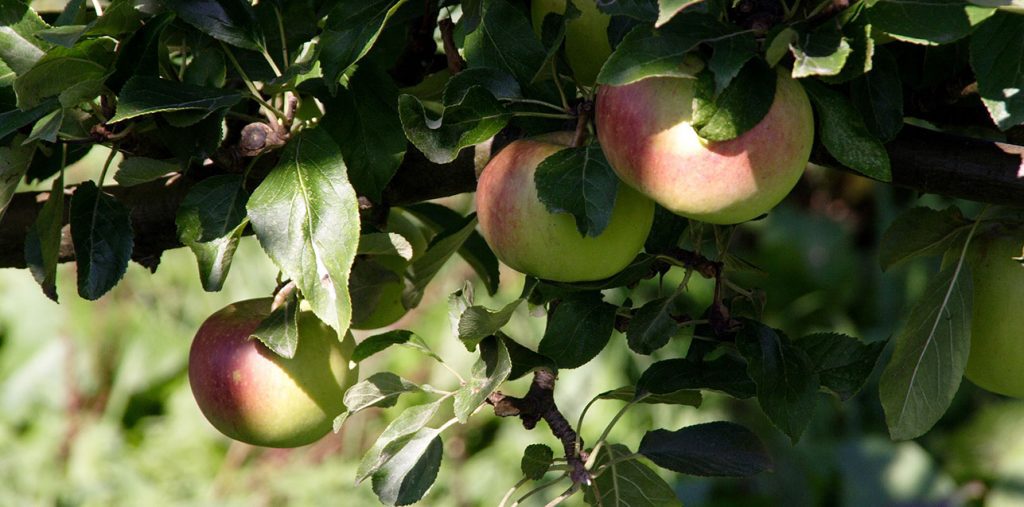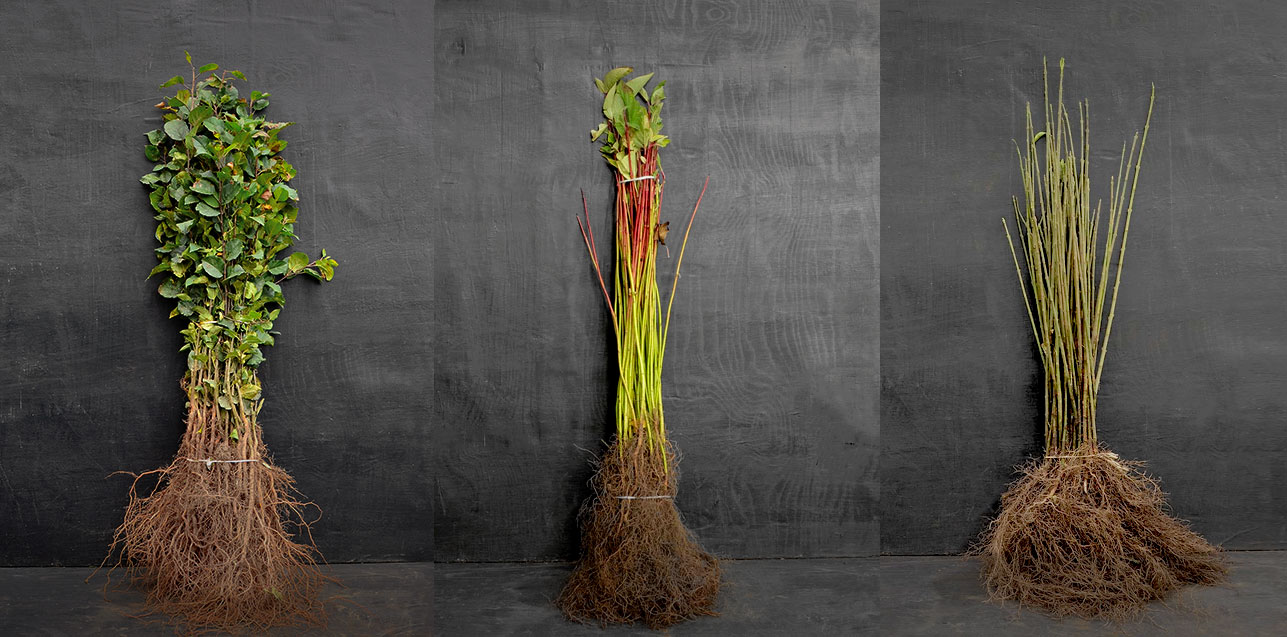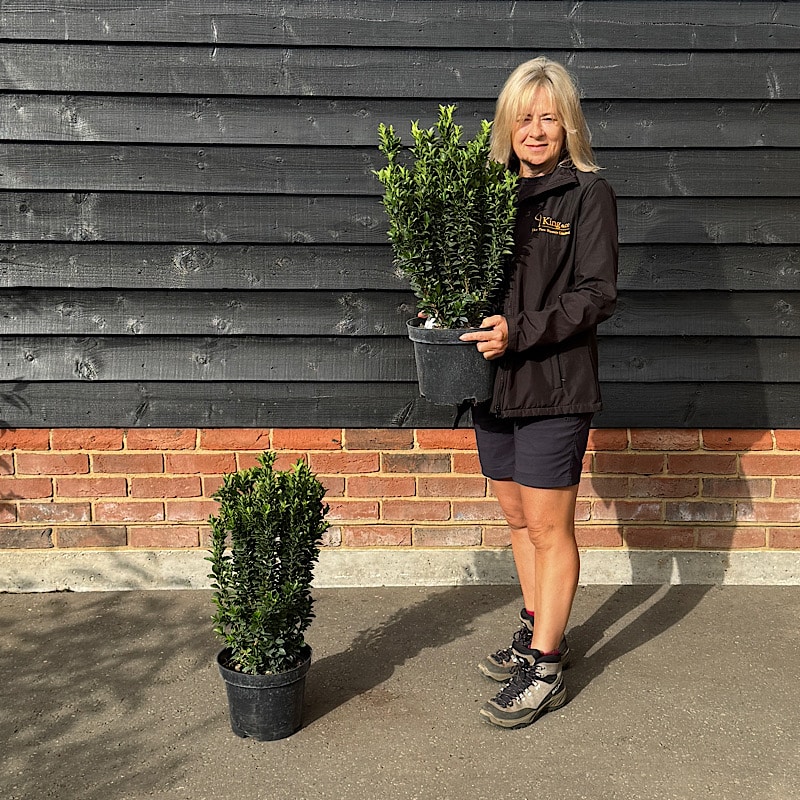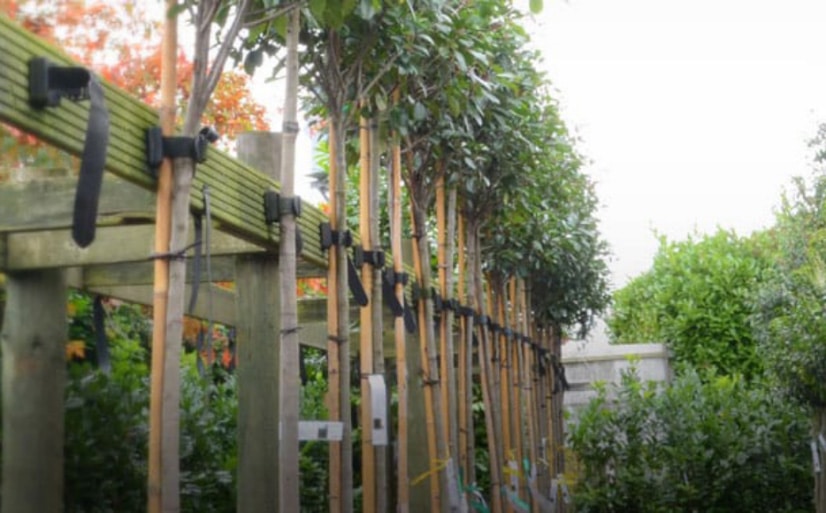Evergreens offer an excellent way to create natural privacy and define garden spaces. At King & Co, you’ll find a wide selection from bushy shrubs and espaliers to standard and pleached trees. These versatile plants are ideal for softening fence lines, screening unwanted views, and marking out borders. By choosing evergreen varieties, you’ll also enjoy lasting structure, greenery, and privacy throughout the year. Here, we’ve highlighted our top picks for the best evergreen plants for hedging and screening.
Bushes & Espaliers
Evergreen bushes and espaliers are excellent for softening fence lines, creating natural borders and adding year-round structure to gardens.
Espaliers
Espaliers are shrubs trained to grow flat along a frame, creating a controlled, two-dimensional shape. As a result, they’re ideal for small gardens or narrow spaces where untrained shrubs might be too large. Since their growth has already been shaped, espaliers come with a defined height and form, offering instant visual appeal. They also bring a clean, formal look to the garden, perfect for those who prefer a structured or architectural style.
Photinia Red Robin: Stunning red new growth on a neatly trained frame, ideal for walls, patios, or boundary lines.
Photinia ‘Pink Marble‘: A variegated twist on the classic, adding a green tint and pink margin for extra visual interest.
Jasmine: Loved for its fragrance and informal charm, perfect for softening vertical spaces.
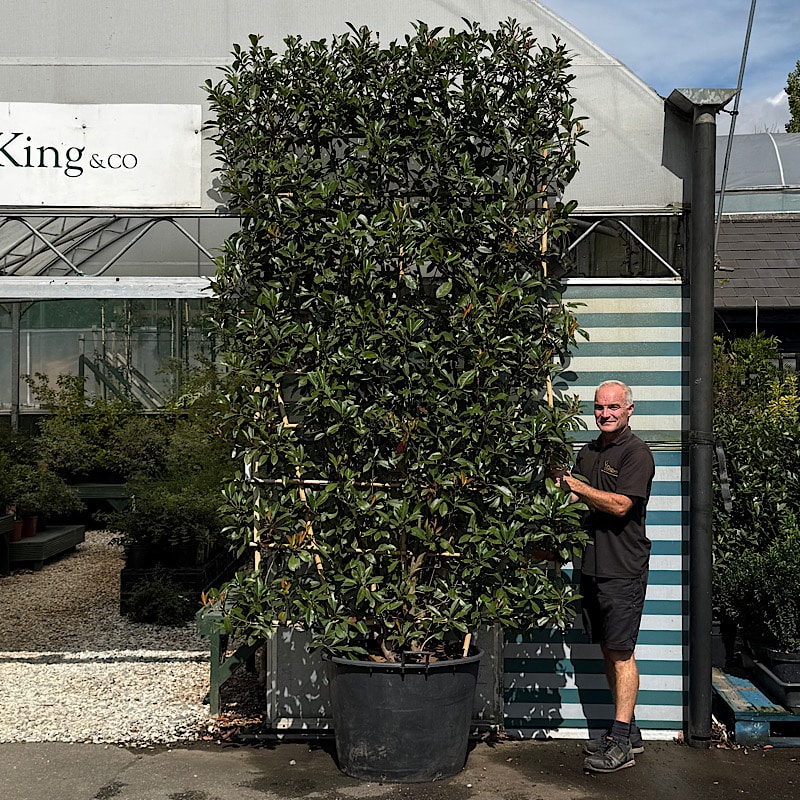
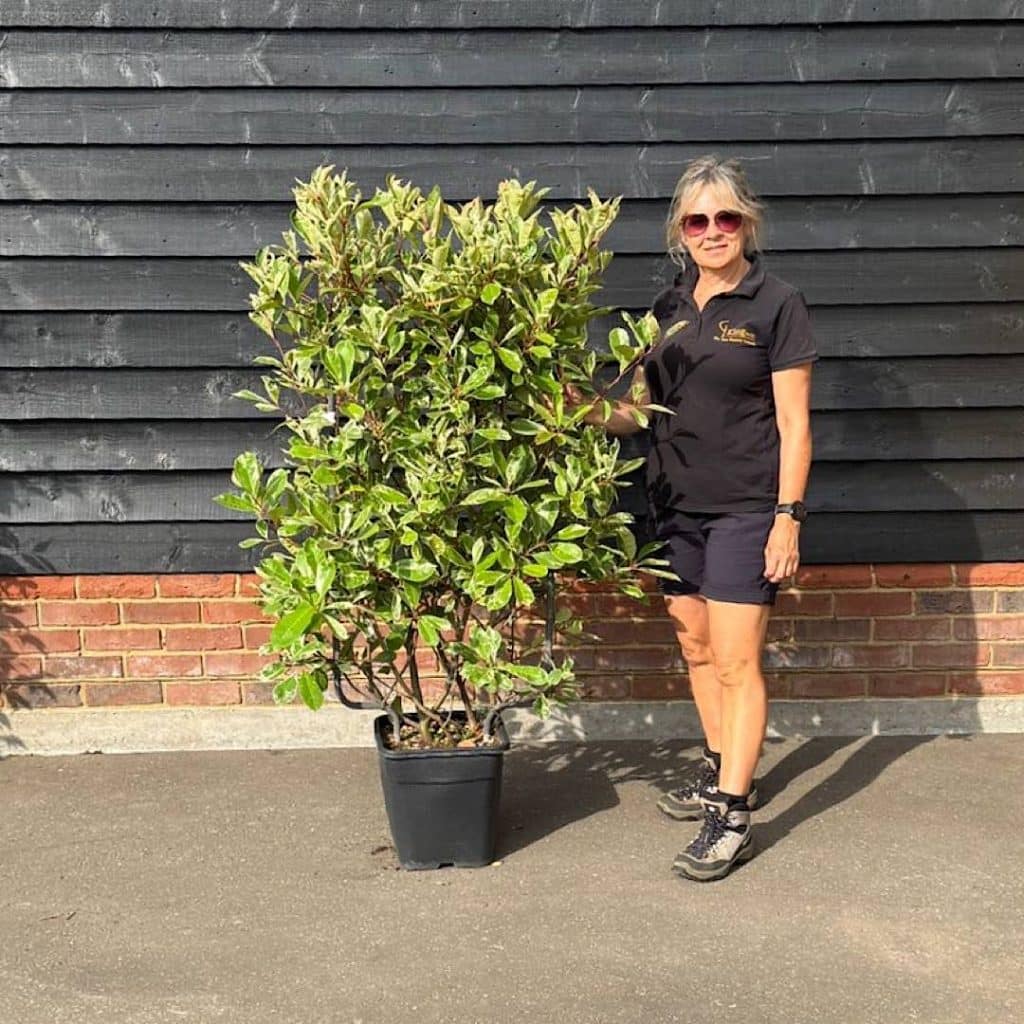
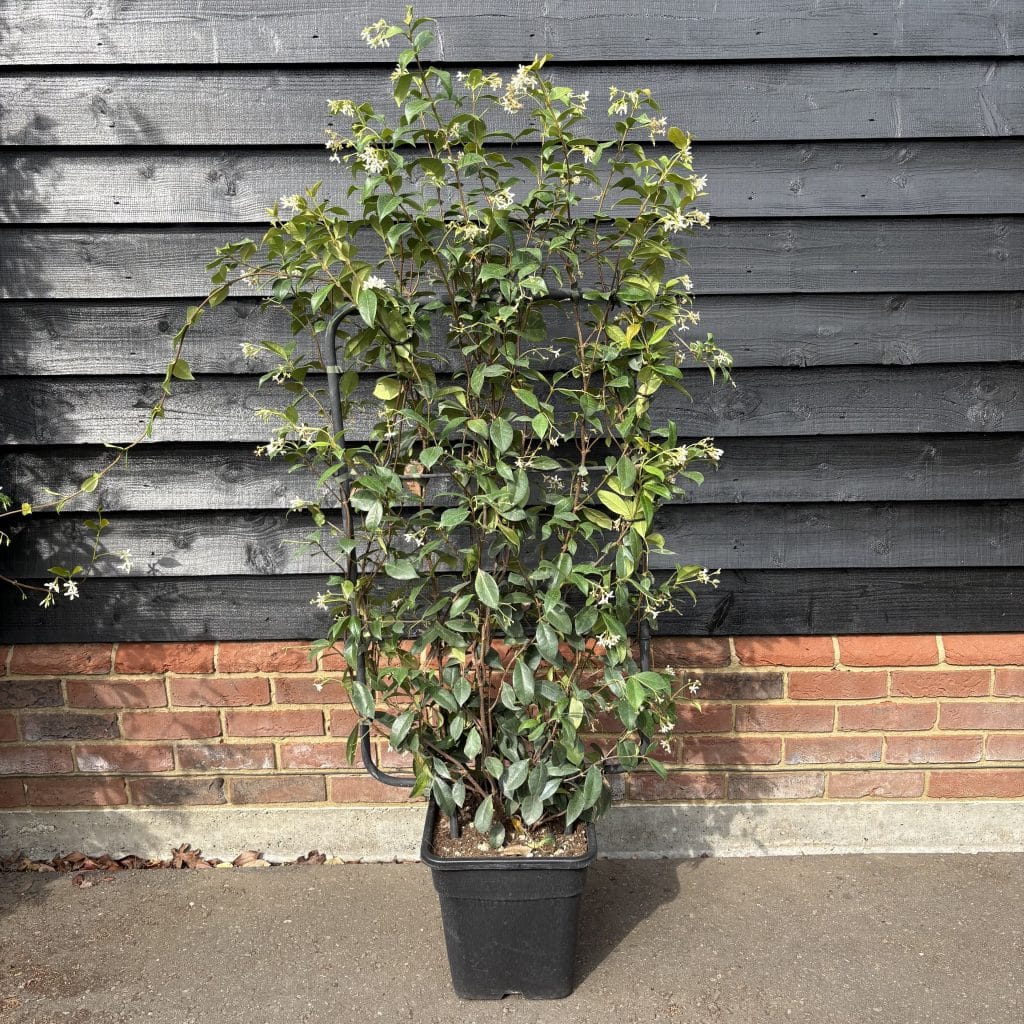
Bushes
Bushy hedging plants grow naturally without being trained flat, developing a thick, three-dimensional screen. As a result, they provide a softer, more natural look. However, if you prefer a tidier appearance, you can easily clip them into a more formal shape.
Photinia: A vibrant, evergreen best known for its striking red new growth, which matures to a glossy dark green. Ideal for adding colour and structure to gardens, it’s fast-growing and easy to maintain.
Cherry laurel: A fast-growing evergreen with large, glossy green leaves that provide year-round privacy and noise reduction.
Portuguese laurel: An elegant evergreen with a dense, upright growth habit. It has smaller, darker green leaves than cherry laurel and reddish-purple stems that add visual interest. It is slower-growing than cherry laurel but more refined in appearance.
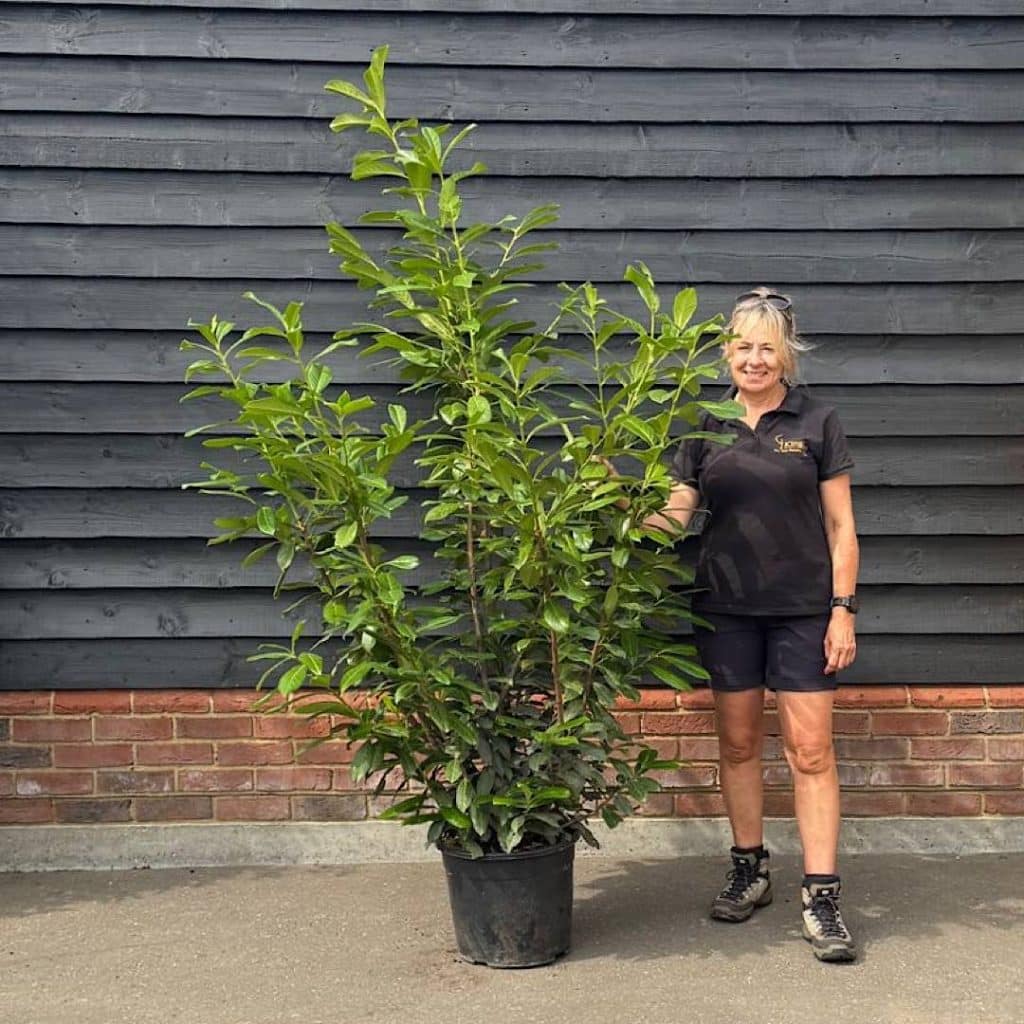
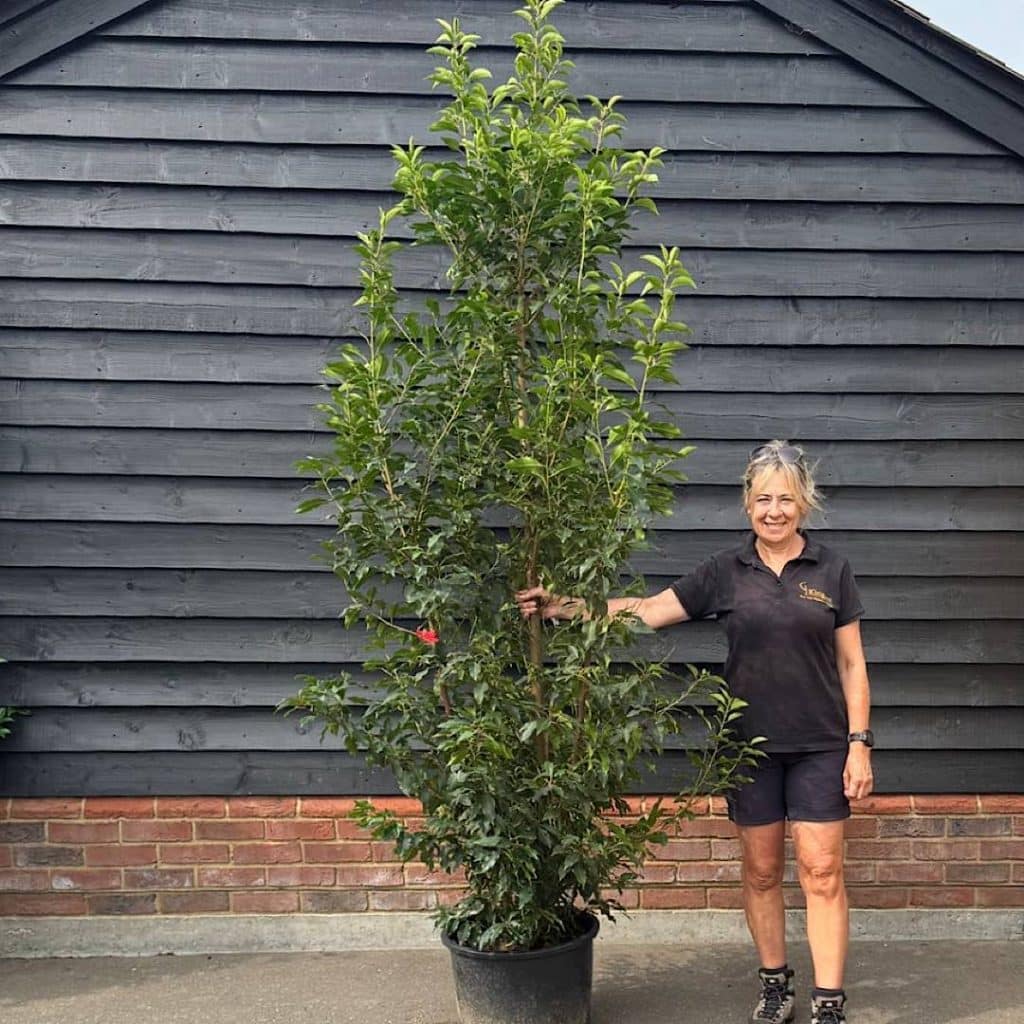
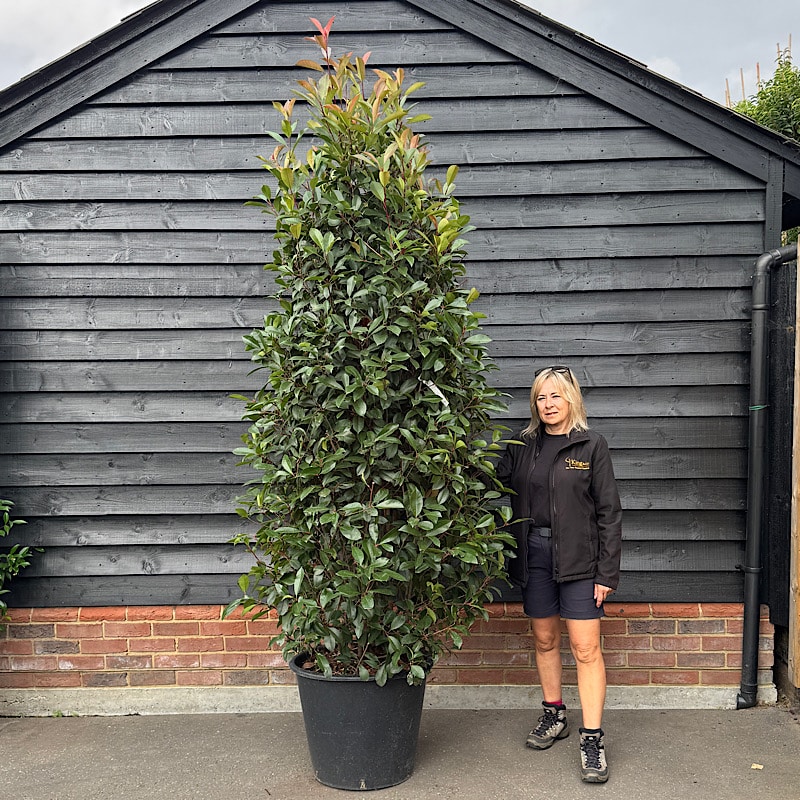
Euonymus ‘Jean Hugues’: This evergreen has dense, compact, and upright growth. Its tough foliage handles trimming well, making it ideal for formal hedges, edges, low borders, or containers. It’s often chosen as a substitute for Buxus (Box) since it resists both box blight and caterpillar.
Standard Screening Trees
We also offer standard forms of Photinia, Cherry laurel, and Portuguese laurel. Each features a clear stem around 1.8 m tall with a dense, bushy head (ideal for screening above fences and blocking unwanted views).
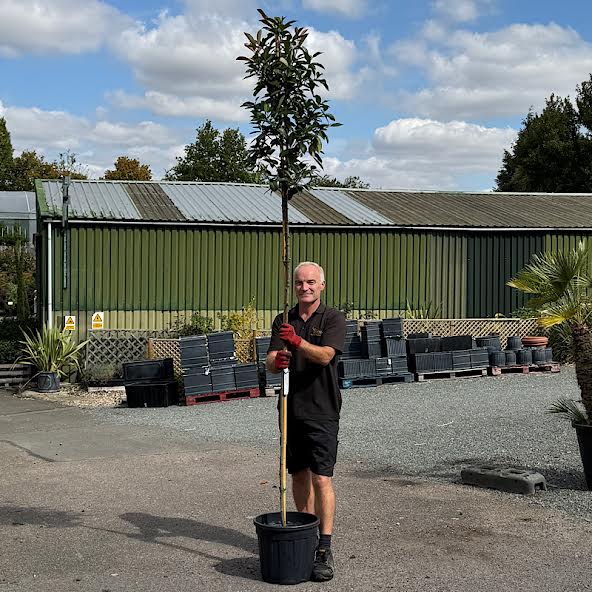
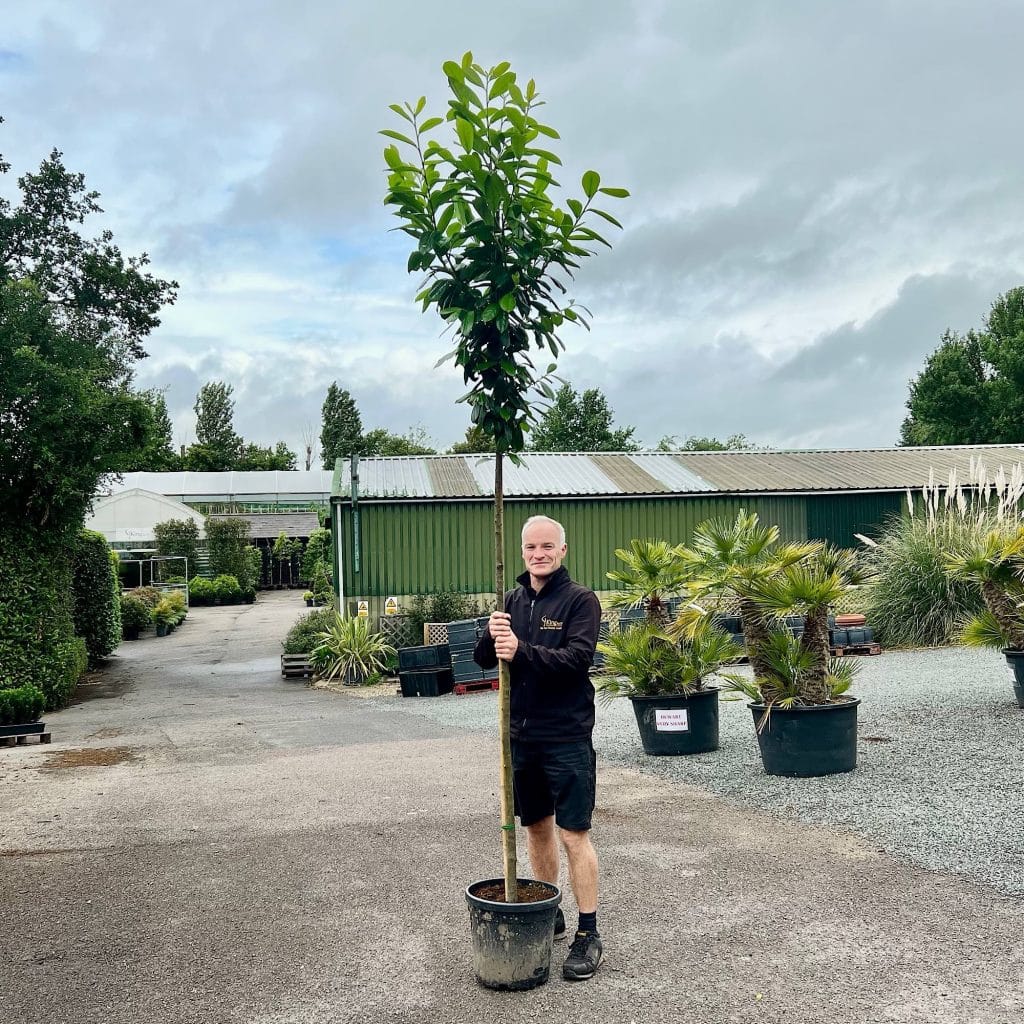
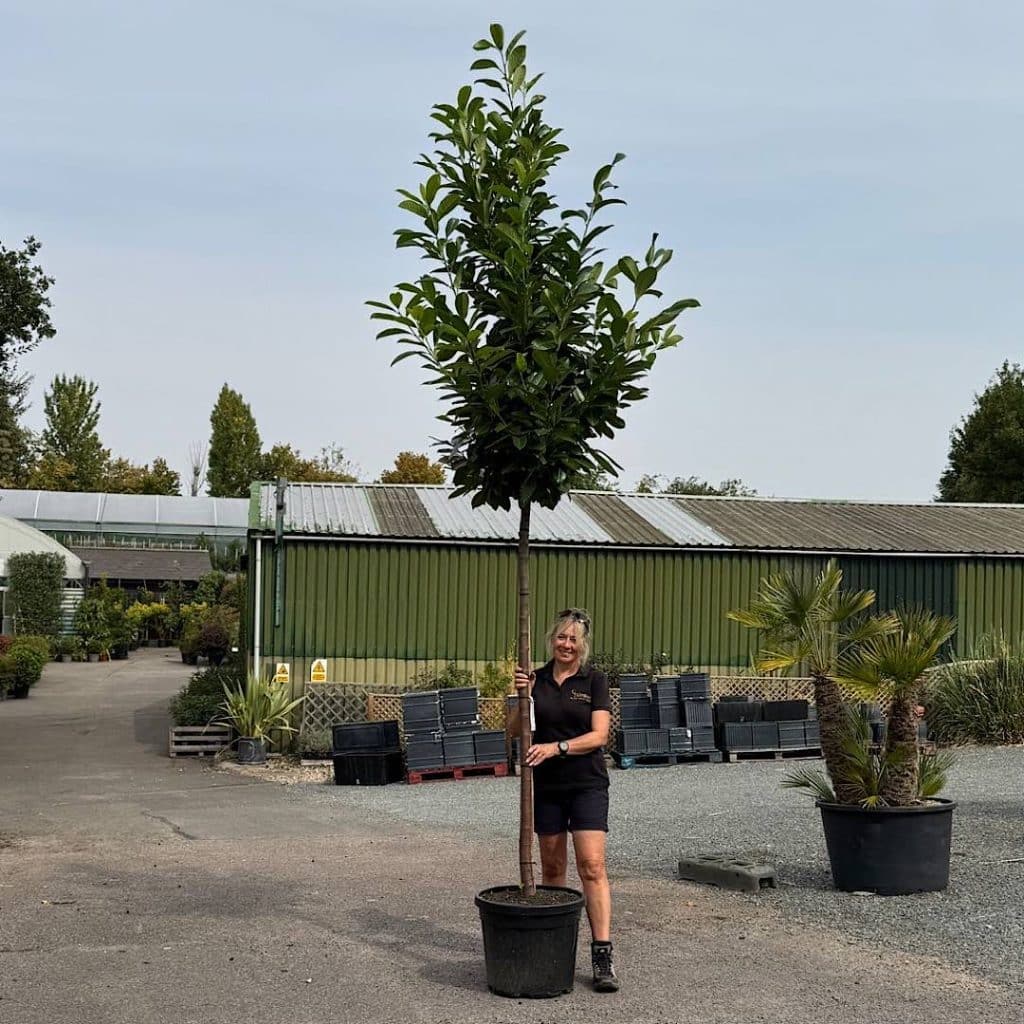
We stock Ilex ‘Nellie R. Stevens’ standard trees too! This hardy evergreen features dark green, glossy leaves with far fewer spines than common Holly, making it easier to handle in gardens and along pathways. In spring, small white flowers appear. Then, in autumn, bright red berries provide a striking contrast. Because ‘Nellie R. Stevens’ is a self-pollinating hybrid, it produces berries without the need for a male or female companion plant.
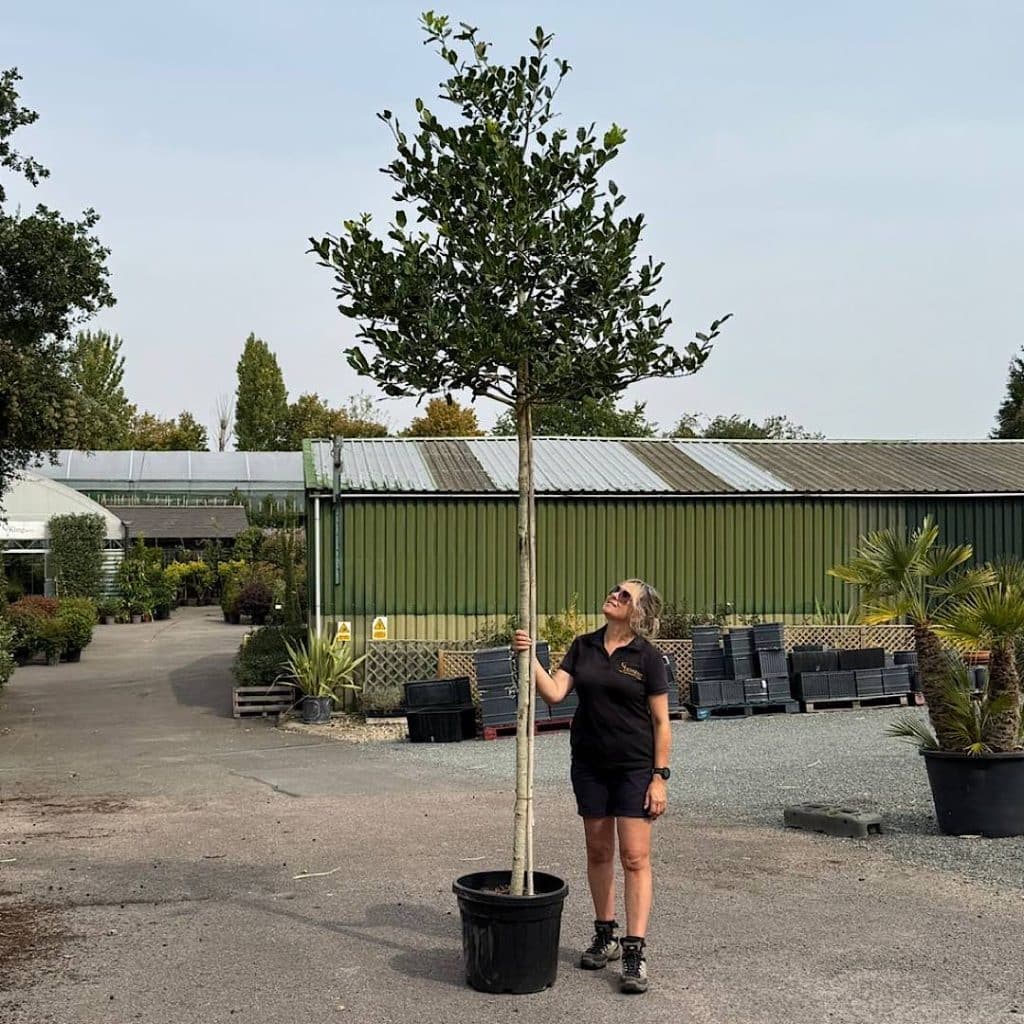
Pleached trees
In addition, we stock a range of pleached trees at the nursery. These also have 1.8 m clear stems, but their foliage is trained flat onto a frame. As a result, pleached trees are perfect for narrow borders and tight spaces. You can also plant them along boundaries or pathways without sacrificing valuable ground space.
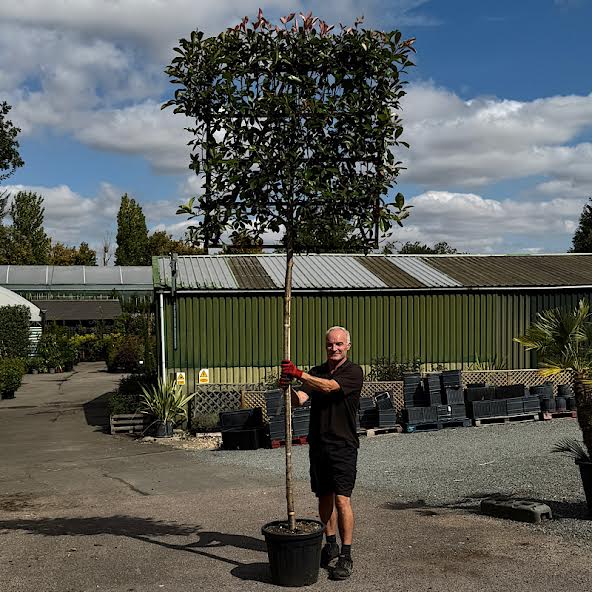
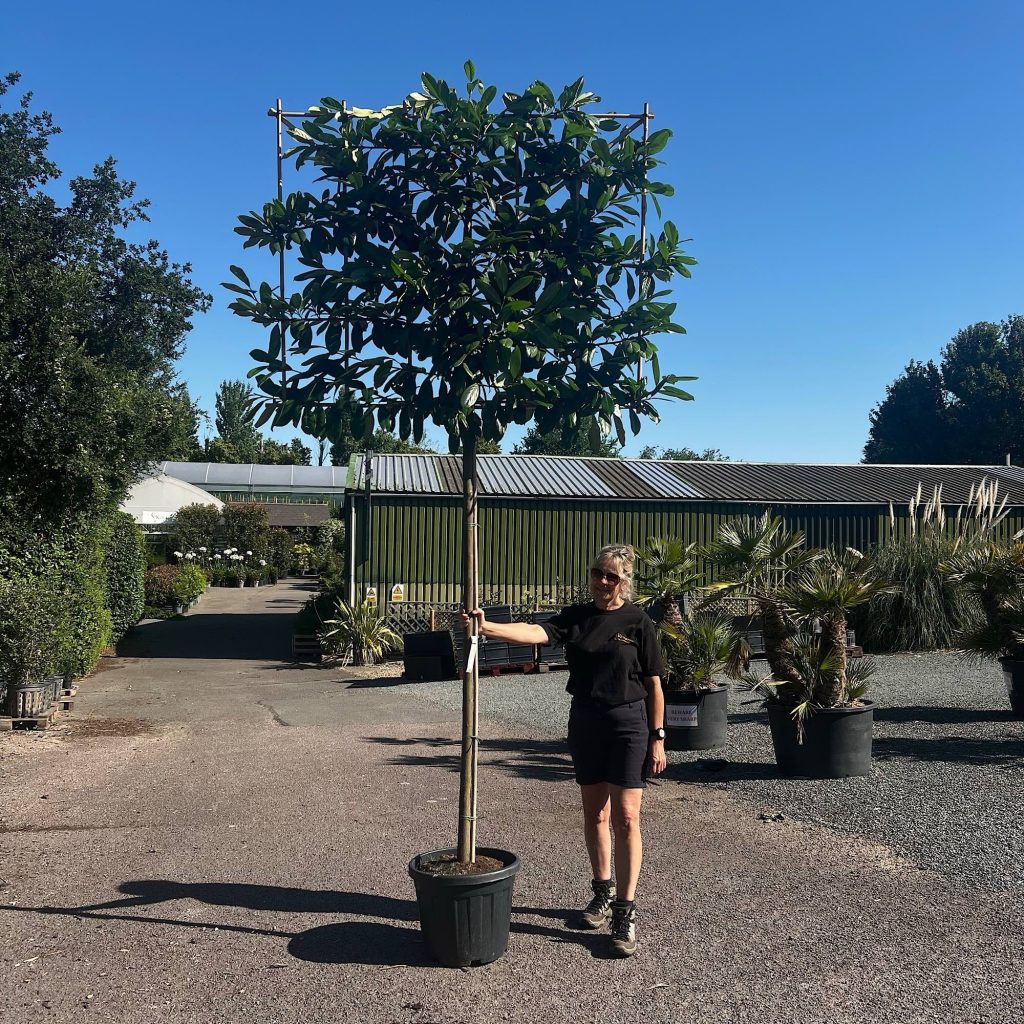
Semi-Evergreen Alternatives
Although evergreens are great for creating year-round privacy and coverage some people prefer to plant semi-evergreens as they tend to have a softer appearance in the winter months. Some of the main benefits of planting semi-evergreens are:
Partial Privacy. Retain some of their foliage through winter, though they may lose some leaves in colder months (especially in harsher conditions). This means that they will continue to offer some level of screening.
Seasonal Interest. With varieties like Hornbeam their foliage changes with the seasons. This helps to add visual interest while still maintaining some level of screening.
Access to Light. When the foliage dries up or drops off in the colder months it means that light is able to access the garden. This helps to brighten up gardens that are lacking in colour (owing to the time of year).
Hornbeam (Carpinus betulus)
One of our favourite ‘semi-evergreens’ is Hornbeam (Carpinus betulus). Although Carpinus betulus is deciduous, it hangs onto its leaves long into the winter, making it a useful screening tree. It is a popular/effective option for screening, instant hedging and structure. Seen below in ‘feathered’ form, this Hornbeam has branches from ground level. It can be trimmed and shaped and responds well to pruning.
